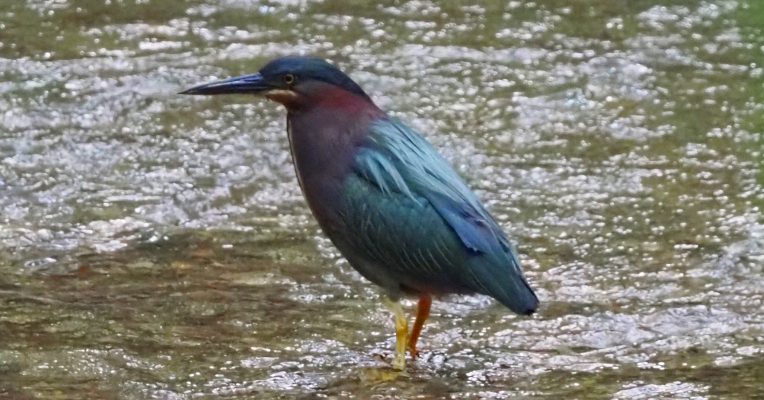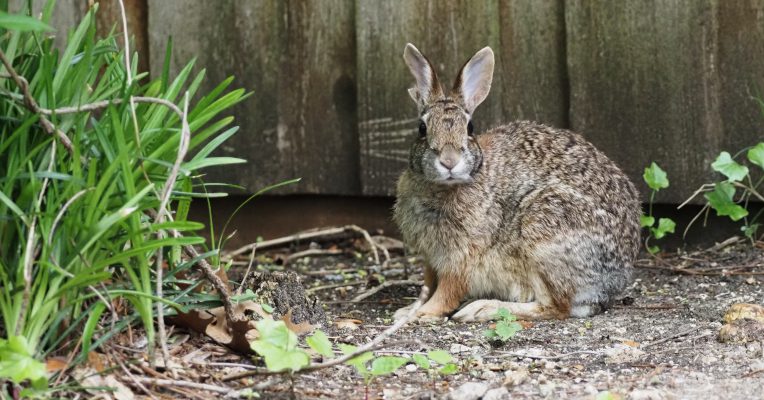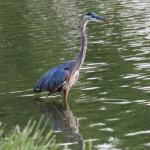Every now and then I get a reminder that for all that my religion is about the worship of the Gods, it’s also about honoring, reverencing, and worshipping Nature.
On Monday Damh the Bard had a short piece on his blog for Lughnasadh. Much of it was about dealing with the hot and dry weather England has experienced this year – something I can definitely relate to here in Texas. But the thing that grabbed my attention was this quote:
I remember talking to a Witch when I was first exploring Paganism many years ago and she said that Lammas was the most powerful of all of the 8 festivals of the Wheel of the Year. She said it had to be, because that moment, the moment of sacrifice when the Spirit of the Fields falls to the blade, is what it’s all about. Everything leads to that moment.
By my numbers, Lammas – Lughnasadh – is the least popular of eight sabbats on the Wheel of the Year. It’s important to my own practice, but it doesn’t have the deep spirituality of Samhain or the determined hope of Imbolc. But Damh’s unidentified Witch is correct: the sacrifice of the grain is necessary and powerful and worthy of our worship.
The agricultural cycle is worth celebrating
The four Fire Festivals date to the pre-Roman Celts and the solstices and equinoxes are astronomical phenomena that are older than life (on Earth, anyway). But the Wheel of the Year is a 20th century invention. I can’t tell you how many times someone has complained “what does the agricultural cycle of Northwestern Europe in the Iron Age have to do with suburban Pagans in 21st century North America?” It’s a fair question.
The answer – for me, anyway – is that even if the timing is off because of latitude and climate change, the basic agricultural cycle is worth celebrating.
It begins with the promise of Spring in the cold of Winter. Then comes the beginning of Spring and preparations for planting. Then we plant plants and animals do what animals do – sex is necessary and good, whether it’s connected to procreation or not. We pause at the height of the Sun. Then comes the grain harvest, the apple harvest, and the final harvest. We mark the longest night and the rebirth of the Sun, and then it all starts over again.
And so we live.
Whether the agricultural cycle was invented by the Gods or is represented by the Gods or is simply influenced by the Gods is far less important than the fact that the agricultural cycle is how we live – how we are able to continue living. And so it is worth celebrating.
All food is a sacrifice
Animism teaches that everything is not a thing but a person – a person with whom we can form relationships.
And also, we must kill other persons to eat.
Whether we eat animal persons or plant persons, either we eat something that was very recently alive or we die. Plants – plant persons – feed on sunlight, but they require nutrients in the soil that come from the decaying bodies of other recently-living plants and animals.
Life feeds on life.
I wrote about this in detail in 2014 and again in 2019. Most people eat mindlessly. They forget that their hamburger was once a walking, breathing cow and their bread was once a stalk of living, growing wheat. We distance ourselves from the persons who provide our food – who are our food – so we don’t feel guilty about eating them.
A better way is to actively honor the sacrifice of the grain and the sacrifice of the animals. We can do this in daily prayers and meditations, and also in the seasonal celebrations like the harvest festivals.
We are part of Nature
There are many differences between a Pagan worldview and a Christian worldview. The most fundamental difference is that Pagans understand we were not placed on the Earth. We grew out of the Earth. The Earth is quite literally our Great Mother.
We are part of Nature. Not the center and not the head, but one part among many, connected to all the other parts.
It is good to honor and celebrate our connections to the rest of Nature: to the land and the spirits of the land, to the sun and moon and sky, to the water in all its many forms, and to all the persons with whom we share this planet.
Some of our Gods are Wild Gods
This is where those who view the Gods in psychological or literary terms talk about “Apollonian” vs. “Dionysian”: order vs chaos, civilization vs. the wild. As a polytheist who worships many real Gods, I find that interesting but not particularly relevant.
What is relevant to me are the Wild Gods, the Gods of natural features and forces, who are present in my life.
Such as Cernunnos.
Cernunnos has been present in my life since I was a small child. I didn’t understand what was going on at the time, but I’m now convinced His presence was one of the reasons I found the woods so comforting and restorative when things were bad.
I still seek out the woods every chance I get, even if it’s just a suburban greenbelt park.
In my daily practice, I honor and worship the Wild Gods just like I worship the Gods of more orderly realms: with prayers, offerings, and meditation. But occasionally, They remind me that They aren’t exactly the same.
Wildness is part of Nature too.
It’s part I struggle with, but also a part I need to acknowledge and honor.
Because before we were farmers, we were hunters and gatherers. That had its own seasons and cycles, different from the agrarian cycle but even more relevant, because there was much less room for error.
The Gods of our hunter-gatherer ancestors are still here. They’re not at war with the Gods of Civilization. But when They tell us who They are, They remind us of the wildness that still lives in each of us.
Not one, not the other, but both
Architect Frank Lloyd Wright famously said “I believe in God, only I spell it Nature.” Wright was a Unitarian and, as best I can tell from a bit of googling, a humanist or perhaps a pantheist. Lots of people who worship Nature are humanists or pantheists. I respect their beliefs and their paths, but I don’t share them.
I’m a polytheist.
Are the Gods part of Nature? Some of Them clearly are – Their realms are natural forces and features. Others, I don’t know – although I tend to think so.
What I know is that I worship Them because They are good and holy and worthy of worship.
And so is Nature.
I’m a Pagan – I worship the Gods and I worship Nature.




















